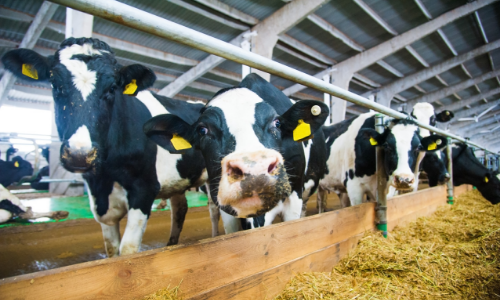A Guide to Dairy for Your Child

It’s National Dairy Month, which is a great time to introduce and discuss the topic of dairy with your child. Mid Florida Community Services Head Start believes in educating parents on healthy practices of dairy to ensure children also follow healthy dairy habits.
What is Dairy?
Dairy isn’t just a glass of milk. “Dairy” can be any fluid milk products or foods made from milk that are able to retain their calcium. Common misconceptions are that products like cream cheese, cream, and butter fall into these categories. Foods made from milk with little to no calcium are not considered dairy products; soy milk is considered a dairy product.
Should I give it to my child?
Consumption guidelines for dairy suggest children (and adults) two years of age or older may consume products containing cows milk. Dairy helps your body function daily, keeps bones strong and reduces the risk of bone loss and osteoporosis later in life. For those over the age of two, low-fat dairy should be the option of choice to lower risks associated with dairy. Low-fat options contain less fat and calories lowering the risk of heart disease. This will ensure you’ll receive the benefits of dairy with a healthier alternative.
If a child is under twelve months, dairy is not recommended for your child. Cow's milk contains higher protein causing digestion to be difficult for your infant. This type of milk doesn't contain the nutrients your baby needs to develop. Modified versions of cow’s milk exist, but it is recommended to speak to a doctor before choosing this option. A mother’s breast milk is the best option for your baby, and we recommend speaking with a registered dietician to learn about ensuring your little one receives all of the proper nutrients they may need.
I’m Lactose Intolerant, Now What?
It is a misconception that lactose intolerance is the practice of completely avoiding dairy. Lactose intolerance is, simply the process in which the sugar known as “lactose” in milk cannot be digested by those that are “intolerant” to it. There are many options for those that are lactose intolerant. Options may include lactase enzyme pills that help to process lactose. For those facing lactose intolerance, foods that are low-fat or fat-free can be digested by those with lactose intolerance. Many stores provide “dairy-free” alternatives that can help those with lactose intolerance avoid dairy-based products.
Educating Your Child This Month
As a proud partner with the Dairy Council of Florida, Mid Florida Community Service Head Start programs work together to educate children on the importance of being healthy by consuming dairy products. It is important to talk to your children about milk and other foods made from dairy. We recommend discussing with your child where dairy comes from, and discuss the importance of positive eating habits, including dairy.
This month, we encourage you to engage and talk to your child about the National Dairy month to educate them about how dairy plays a role in their lives. Here are a few ways to start the conversation:
- Engage in Activities: Provide fun worksheets about where milk comes from, and the different types of cows they may see.
- Visit: Take a trip to visit a local farm to view cows in their natural habitat and discuss the source of their milk!
- Play: Find fun activities at home that involve milk, to engage your child in exciting playtime and encourage creativity!
- Try It! Yogurt is a great tasting dairy food that can often be paired with tasty, delicious fruit! Try pairing different fruits into your child’s yogurt and experiment with taste!
For more fun activities for your child, we recommend visiting the Florida Dairy Council Kids Corner to find fun activities, learning sheets, and more. For more information about Mid Florida Community Service Head Start and Early Head Start health programs, click here.

